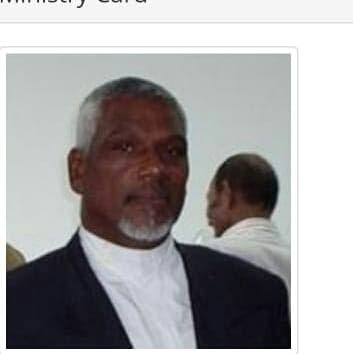TELL ME SORRY GARY

LESS than an hour after issuing a statement insisting that his description of the conditions at the Transformed Life Ministry’s rehabilitation centre in Arouca as “modern day slavery” was correct, Police Commissioner Gary Griffith is being asked to make a public apology.
The call is being made by the centre's owner Pastor Glen Awong who said the description was unfair and misleading.
Speaking with Newsday on Thursday, Awong, 63, said none of the descriptions of his facility by police and media were correct. He said while he harboured no ill-will against Griffith, he would appreciate a public apology to make amends.
Awong said he has been a practising counsellor since the age of 18 and was dedicated to improving the lives of homeless and mentally-ill people.
"He (Griffith) is a human just like us and he makes mistakes.
"As a commissioner of police he really should be more responsible than that. I have nothing against him, he seems like a respectable person and a good crime-fighter, but I am a pastor doing work like this and this is how you come down on me?"
Describing the level of treatment he received from the police as “demonic,” Awong said he was awaiting the conclusion of the police investigation to see if he was guilty of any wrongdoing.
"These are things that have to be confirmed by accurate intelligence and he (Griffith) misled the (country) by saying this is a human-trafficking bust. The truth will be revealed as the days go by."
Awong said he was not afraid of being prosecuted and was prepared to be locked up.
Asked if he is considering filing a lawsuit against the State, Awong said he was unable to answer that just yet as he was speaking in the presence of his lawyers.
Describing the cages at the centre as “seclusion rooms,” Awong said he did not enjoy confining patients in such conditions, but maintained it was necessary to ensure the safety of staff at times.
"People only go to the seclusion rooms if they are violent or harm themselves. So before they can harm someone, they go in the room. We don't want to put anyone inside the seclusion rooms because it's better for us when they are empty.
"It's more work because we have to send staff there to feed them, make sure they eat, make sure they have enough water, so I don't want that for them. I really don't want to do that, but the Ministry of Health says that is necessary."
Awong confirmed he was in the process of bringing his centre up to standard as per recommendations made by the Health Ministry during a site visit, but criticised the police’s treatment of mentally-ill people, saying confrontations between the two often ended in bloodshed.
"More mentally-ill people died on the street than by me. There may be an incident once in a blue moon but that's it. Families took out about five patients here within the course of about two months, and the reality is the five of them got gunned down. The police can't control them. They aren't trained to do that, and the police themselves will tell you that they aren't trained to do that. I am trained to handle them."
Awong also accused the government of politicising the issue of homeless care and believed the raid on his compound may have been linked to an existing lawsuit against the government for money owed.
He said he lived at the facility and, while he was detained for questioning by investigators, he was never placed under arrest or charged with any crime.
Awong also said, as part of the investigations his vehicles were also seized.


Comments
"TELL ME SORRY GARY"